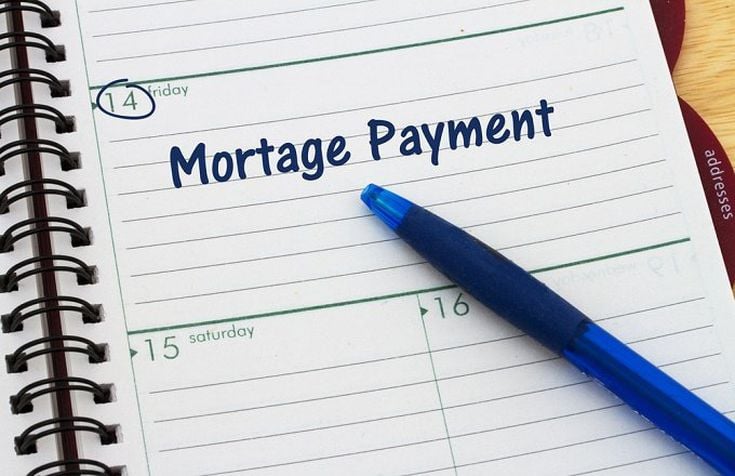One intuitive conclusion about the tight inventory of houses for sale is that the amount of equity owners have in their homes has been rising for several years. Long-term ownership, along with rapid price appreciation, results in homeowners having ten and hundreds of thousands of dollars of wealth built up as home equity. But you might want to keep that wealth secured.

According to historic Federal Reserve data, in the past, significant home equity resulted in homeowners taking out second mortgages. This was particularly true from 1988 to 1992 and again from 2000 to 2005. There was another small increase in second mortgages from 2005 to 2008. However, ever since the banks demonstrated how easy it is to foreclose on homes and strip away that equity, second mortgages have been in serious decline. Home equity loans have been in constant decline since 2009. The number of American homeowners who are paying for both a primary and secondary mortgage or home equity loan has fallen by roughly one-half since 2009, according to Census Bureau data.
If current homeowners aren’t selling so that they can move up to a bigger and better house, should they be being using existing equity to finance home improvements, additions, and other financial reasons? There are options as well as pros and cons to that question.
There are two basic types of second mortgages. One is a lump sum loan secured by the equity you already own in your home. Typically, a second mortgage goes as high as 80 percent of the equity you own.
The second type of loan is a home equity line of credit (HELOC). Just as the title describes, you can access credit as needed by writing a check or using a credit card rather than taking it as a lump sum.
A big reason that second mortgages have declined is that the interest tax deduction severely limits how the money can be used. The interest is not tax-deductible if the money is used to pay off student loans, to consolidate consumer loans, nor is the interest tax deductible if used as a down payment for vacation homes, nor for any other use that is not directly related to the house the loan is secured by.
“The Tax Cuts and Jobs Act of 2017, enacted Dec. 22, suspends from 2018 until 2026 the deduction for interest paid on home equity loans and lines of credit, unless they are used to buy, build or substantially improve the taxpayer’s home that secures the loan.” – IRS, IR-2018-32, Feb. 21, 2018
There are other important considerations other than the tax deduction. An important one is the Annual Percentage Rate (APR). This is the full amount of interest that you will pay for a loan for one year. The APR includes any fees you may need to pay, plus the interest rate. While personal loans usually carry a higher interest rate, the APR for a second mortgage can be higher because of all the other fees. Taking out a second mortgage is much the same as a first mortgage. Tons of fees and costs like appraisals go into the cost of obtaining the loan. You can usually wrap all of the fees into the amount loaned. However, what this does is increase the amount of the loan, which also increases the amount of interest you pay each month. Take a long hard look at the actual cost of the money before you assume the slightly lower interest rate on a second mortgage saves you money compared to a personal loan.
And then there is that foreclosure issue. That second mortgage is secured by the equity in your home. If for any reason you fall behind on the payments, the bank can and will foreclose on your home. On the other hand, most personal loans are unsecured (the reason for a higher interest rate). If you fall behind on payments for most personal loans, your credit rating will take a hit but no one is likely to take your home away from you. And here’s a kicker, your home equity still works in your favor for a personal loan. Your equity is probably your biggest asset. When that value is used to calculate your total assets and net worth, it will probably get you a lower interest rate on a personal loan.
Deciding between a second mortgage or a personal loan is more complicated but those are the big considerations for most people.
The move away from second mortgages and into personal loans is unmistakable. According to a survey by TD Bank, 9 out of 10 people (90%) are using personal funds to finance home improvements. That corresponds with Federal Reserve data showing a continuing decline in the number of home equity loans taken out.
The TD Bank survey found almost all owners planning home improvements are finding money sources other than second mortgages. People planning kitchen upgrades, adding another bathroom, or just redoing the landscaping say the money will come from:
You won’t be able to write the interest off on these other loan sources. But on the other hand, your home won’t be at risk of foreclosure. The approval process for a personal loan is also much faster and requires less of your time and energy.
Certainly, you have thoughts and experiences with second mortgages or personal loans. Please share by leaving a comment.
Also, our weekly Ask Brian column welcomes questions from readers of all experience levels with residential real estate. Please email your questions, inquiries, or article ideas to [email protected].